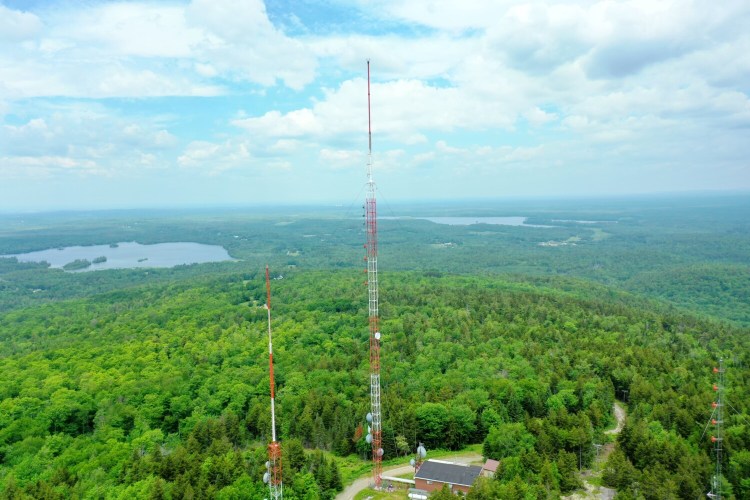Maine Public will add seven radio signals to its network over the next three years in order to reach more listeners in rural parts of the state, including northern Maine and Down East.
The public network announced Monday that the Federal Communications Commission had approved the new FM signals and the construction of broadcast towers for each. Maine Public estimates the new signals will help them reach nearly 100,000 more people at a cost of about $2.6 million. Currently, Maine Public has 14 radio signals emanating from towers across the state.
The goal of the expansion is to air the network’s Maine Public Radio news and information programs where they are difficult or impossible to get now and to continue to expand the Maine Public Classical service, said Jeff Mahaney, Maine Public’s chief technology officer.
Towers in Bethel, Greenville and Millinocket will broadcast Maine Public Radio programs, including “Morning Edition,” “All Things Considered” and “Maine Calling.” Towers in Calais, Fort Kent, Greenville and Mars Hill will carry the music of the Maine Public Classical service, network officials said Monday.
“There’s work to be done on the fundraising side to build out these signals, but we are closer than ever to making Maine Public’s radio signals accessible to everyone in Maine,” Mahaney said.
Currently, Maine Public has seven signals for its Maine Public Radio programming, with towers based in or near Calais, Portland, Camden, Bangor, Waterville, Presque Isle and Fort Kent. The Maine Public Classical signals are licensed to Fryeburg, Milbridge, Boothbay Harbor, Waterville, Sanford/Kennebunkport, Portland and Bangor.
Each signal is broadcast on a different frequency or dial position and has different call letters. Portland’s Maine Public Radio signal is heard on 90.1 FM and known as WMEA for example, while Presque Isle’s signal is heard on 106.1 FM and its call letters are WMEM. Maine public has offices and studios in Bangor, Lewiston and Portland.
Maine Public is also the state’s public television broadcaster. The Maine Public Classical service launched in 2016 with three signals, then added two more in less than a year and two others since. The last time a signal was added to the Maine Public Radio service was in 2002, in Camden.
As a condition of each construction permit, each new signal must be on the air within three years of being awarded, Maine Public officials said. At least three new towers will have to be built for the project, while other existing towers and equipment might be used. Calais will likely be the first new signal to go on the air but Maine Public officials said they have no timeline yet for the other signals.
Send questions/comments to the editors.




Comments are no longer available on this story